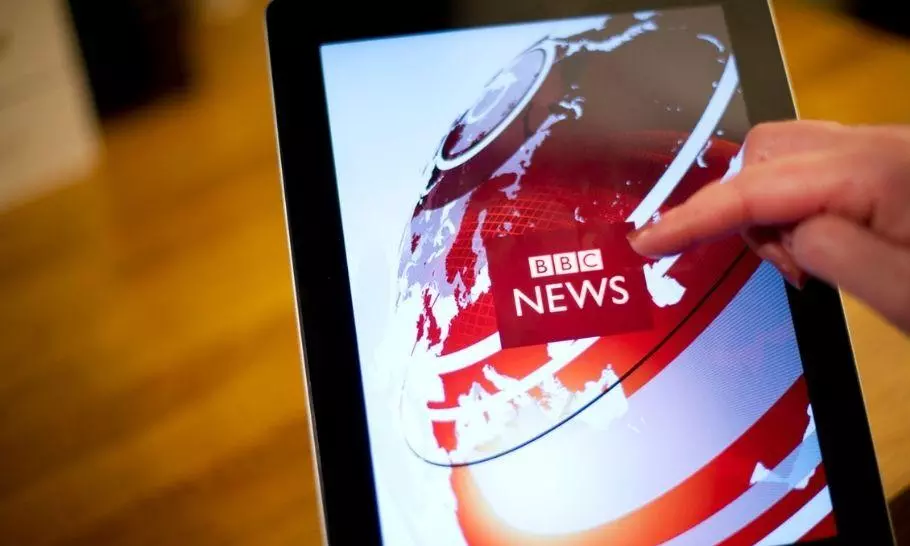
What explains Indian government's long-term discontent with BBC?
This time, the anger is over BBC’s use of 'militants' rather than 'terrorists' in a Pahalgam story, but there have been issues since the 1970s

BBC’s coverage of the Pahalgam terror attack, which left 26 people, mostly tourists, dead, has not gone down well with the Centre.
It has shot off a letter to the head of operations of BBC India, Jackie Martin, raising several objections.
What are the objections?
The Centre has taken exception to the UK-based media outlet’s headline of an article on the Pahalgam attack — "Pakistan suspends visas for Indians after deadly Kashmir attack on tourists".
This was flagged by social media users, who said the headline is misleading as it seems to suggest that India was behind the attack.
The government has also objected to the BBC’s use of the word “militants” instead of “terrorists” to refer to the attackers in Pahalgam.
BBC is not the only one. The Centre has also suspended several YouTube channels of Pakistan-based media outlets including, Geo News, and Suno News, Bol News and Raftar following the Pahalgam terror attack.
Also Read: As tensions escalate between India and Pakistan, US calls for ‘responsible solution’
What's the history?
This is not the first time BBC has been in the Centre’s crosshairs. In February, the Enforcement Directorate (ED) slapped a penalty of Rs 3.44 crore on the BBC World Service India for alleged violation of foreign direct investment regulations.
The ED also fined three directors of the UK-based media house over Rs 1.14 crore each, issuing an order against the British broadcaster following adjudication under the Foreign Exchange Management Act (FEMA).
The adjudication proceedings were initiated after a show-cause notice was issued on August 4, 2023, to BBC WS India, its three directors, and the finance head for various "contraventions" under FEMA..
The ED initiated the probe under FEMA against BBC a couple of months earlier, following a survey by the Income Tax Department in Delhi in February 2023.
Also Read: 'Are you super-BJP man?' Cong leader asks Tharoor for remarks on Pahalgam attack
Anything else?
BBC WS India, which is a 100 per cent FDI company, was engaged in uploading/streaming news and current affairs through digital media. It "did not" reduce its FDI to 26 per cent, and kept it at 100 per cent in "gross violation" of the regulations issued by the government of India, reported PTI.
The total penalty levied on BBC WS India stands at Rs 3,44,48,850, along with a fine of Rs 5,000 for every day after 15.10.2021 till the date of compliance for violation of the provisions of FEMA, 1999.
According to the Central Board of Direct Taxes (CBDT) the 2023 survey revealed the income and profits shown by various BBC group entities were "not commensurate" with the scale of their operations in India, and that tax has not been paid on certain remittances by its foreign entities.
What was the documentary row?
BBC also faced the Narendra Modi government’s ire over its 2023 documentary India: The Modi Question. The documentary — which held Prime Minister Modi directly responsible for enabling the violence in the 2002 Gujarat riots — was slammed the by Ministry of External Affairs (MEA). The MEA called it a “propaganda piece” to promote a “particular discredited narrative.”
Another 2015 documentary by the BBC, titled India’s Daughter, focousing on the Nirbhaya gang rape and murder case in Delhi in 2012, was snubbed by the then Union Home Minister, Rajnath Singh as “highly derogatory.” However, BBC stood its ground, saying the documentary “handles the issue responsibly”.
It's not just the Modi-led BJP government that has had run-ins with the British broadcaster. The BBC also upset the Indian government in the 1970s by screening two documentaries of acclaimed French filmmaker Louis Malle. This even led to a ban on the documentaries for two years.
The two documentaries were Phantom India, a seven-part miniseries made for television by Malle, and the Calcutta, focused on poverty, slums, and rituals in the city.

